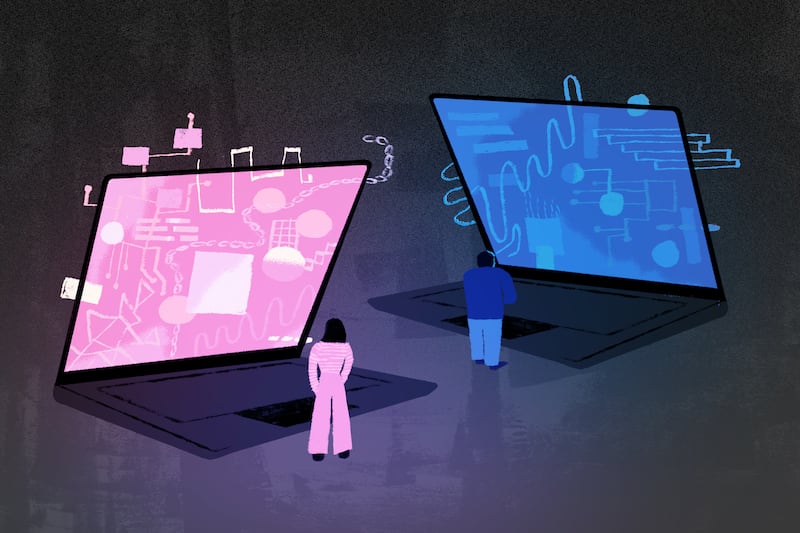For better or for worse, artificial intelligence is becoming a larger part of online life. While tech companies are incorporating it more and more into their business models, the concern over AI taking jobs from humans is growing.
Let’s start with a couple of recent examples.
Fiverr, an online marketplace for all sorts of freelance services, says it’s becoming an AI-first company. A spokesperson has announced the Israel-based business will lay off 30% of its workforce, Reuters reported.
“AI continues to be a power driver for everything we do,” according to Micha Kaufman, founder and CEO of Fiverr. “We are uniquely positioned at the intersection of human and AI, making us the go-to platform for AI expertise.”
A San Francisco-based company is also replacing some of its employees with AI. Salesforce offers organizations a suite of business tools including customer service platforms. It recently cut 4,000 customer support roles. CEO Marc Benioff said on The Logan Barlett Show podcast that customer satisfaction is about the same whether someone speaks with a live representative or a bot. He said the growing use of AI simply means he needs “less heads.”
Are these stories one-offs or are they a sign of what may become the norm?
The Federal Reserve Bank of New York asked businesses whether the use of AI had led to workforce adjustments. While businesses did say they used more AI over the past year, very few reported it led to any layoffs. Instead, these businesses were more likely to retrain employees. In fact, the data showed that over the next six months, more than 45% of businesses say they plan to upskill employees to use AI in their jobs.
As businesses implement more AI applications, The Strategy Institute suggests retraining workers is exactly what needs to happen so that people are prepared. It recommends incentivizing employees to learn more about AI by offering stipends or bonuses. Smart workers won’t need the nudge.
The Harvard Business Review is cautioning businesses against using AI capabilities to shed entry-level jobs for humans. The article by professors Amy C. Edmondson and Tomas Chamorro-Premuzic makes the case that those entry-level employees need that early training to eventually become a manager. They also argue that age diversity in the workforce is good for company culture and innovation.
But, the majority of jobs available may soon require skills that include some level of AI training.
A new study released by Indeed found that while 26% of jobs posted on its website could be “highly” transformed by AI, 54% are likely to be “moderately” transformed.
At the same time, Indeed itself is utilizing AI capabilities to match job seekers and employers. The company’s CIO said it has deployed AI “everywhere” within Indeed. But Anthony Moisant also pointed out that humans will never be completely cut from their business processes.
For job seekers wanting to take steps to safeguard themselves against losing potential employment to a bot, the World Economic Forum has some ideas. It suggests steering away from listing past accomplishments and instead hyping up adaptability and the ability to learn new systems.
Another strategy is to market yourself as someone who can figure out how to implement AI within a company’s processes. Finally, when choosing a career path, the World Economic Forum suggests looking for positions that combine human judgement with AI capabilities.
Whether AI will change the way people work is not a question. Sure, it will affect some industries more than others, but the key to survival may come down to upskilling and retraining employees (and yes, yourself).


